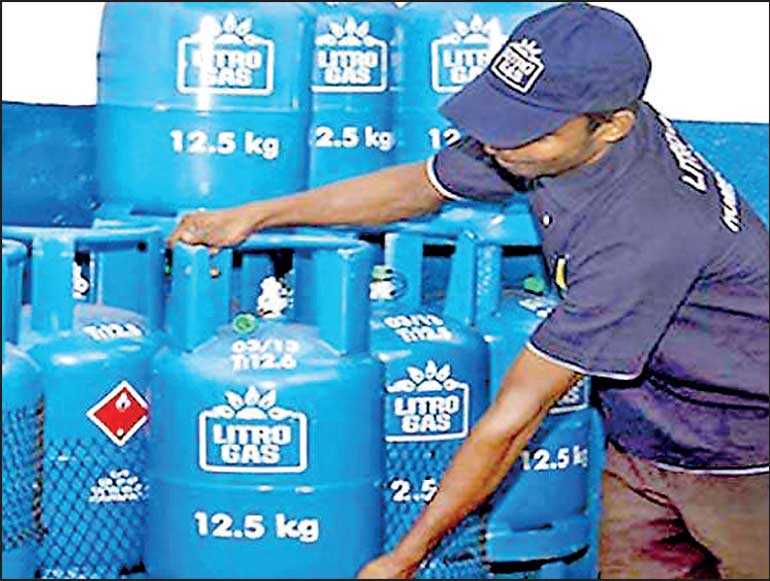Wednesday Feb 25, 2026
Wednesday Feb 25, 2026
Tuesday, 26 November 2019 00:15 - - {{hitsCtrl.values.hits}}

In a bid to create a buffer stock for the upcoming December and April festive seasons, Litro Gas has begun the purchase of over 200,000 LPG cylinders worth close to Rs. 1.7 billion, with officials giving assurances of the transparency of the transaction, which was approved just days before the Presidential Election.
The purchase was also made with a focus on bridging the supply gap that was seen recently when many consumers complained of a gas shortage in the market caused by an attack on a Saudi gas production and storage facility by Yemeni rebels.
“The recent LPG shortage put a strain on our cylinder stock and we wanted a buffer sock ready for the December and April festive seasons when demand rises,” a senior Litro Gas official told the Daily FT.
The nearly Rs. 2 billion order will see more than 200,000 LPG cylinders of different capacity being imported to Sri Lanka from mid-December to the end of March. The order includes 12.5 kg, 5 kg and 2.3 kg cylinders which are widely used in Sri Lanka.
In spite of transparency concerns being raised by the industry due to the purchase being approved by the Cabinet just days before the Presidential Election and the rush order, Litro officials yesterday provided assurances that due process was followed and necessary approval was obtained prior to the purchase. Cabinet approval was given on 13 November for the purchase to be made on an emergency basis.
“We only informed the Finance Ministry that there was an urgent requirement,” a senior Litro official explained, pointing out that there was a sudden surge in demand for domestic gas cylinders resulting in Litro being unable to keep up with deliveries. The officials also pointed out that the current supplier, an Indian-based manufacturer, could not meet deliveries on time, despite the order being made in May 2018, and this further compounded the shortage.
Litro had sought advice from the Finance Ministry and had been directed to make an emergency procurement by the Standing Cabinet Appointed Procurement (SCAP) Committee. The process of awarding the tender had taken almost one month, with the initial request made to the ministry on 7 October 2019. Concerns were raised as to why the tender was not floated for the usual six-week duration.
However, Litro officials stressed that the invitation of bids from 17 October to 23 October was normal under emergency procurement practices. They pointed out that the tender specifications were unchanged from the one issued to the Indian supplier who failed to make the deliveries.
“We were very fortunate that the pricing did not change with the new supplier, even with a one-year gap between the two tenders,” one Litro official stated, rejecting concerns that the order had been made at a higher unit price.
“The funds for this purchase are 100% from Litro. We are not dependent on the Treasury for it,” he added.
According to Litro, the Technical Committee report had been submitted to the SCAP Committee on 7 November with the committee giving approval on 13 November.
“Once samples are received during the week biding is opened, the cylinders are tested and checked for operational conformity,” another Litro official stated, pointing out that with gas cylinders, safety was a core concern.
Commenting on the new supplier, Litro claimed that it was one of the world’s leading cylinder manufacturers and had supplied cylinders to Sri Lanka before. However, the officials would not name the manufacturer, other than to say it was a Thai supplier.
Litro claims 76% of the LPG market share, with 34 distributors and 9,500 distribution points island-wide.